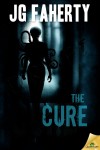

May 18 – 24: “How intense is the plotting and vindictiveness of some houses – no names!”
 People imagine the publishing world to be one of camaraderie. But is that naïve? This week ITW Members Ralph Pezzullo, Cat Connor, JG Faherty, Gary Grossman, Ines Eberl-Calic and Jean Heller discuss how intense the plotting and vindictiveness of some houses can be – no names!
People imagine the publishing world to be one of camaraderie. But is that naïve? This week ITW Members Ralph Pezzullo, Cat Connor, JG Faherty, Gary Grossman, Ines Eberl-Calic and Jean Heller discuss how intense the plotting and vindictiveness of some houses can be – no names!
~~~~~
 Ralph Pezzullo is a New York Times bestselling author, and an award-winning playwright and screenwriter. His books have been published in over twenty languages and include Jawbreaker (with CIA operative Gary Berntsen), Inside SEAL Team Six (with Don Mann), The Walk-In, At the Fall of Somoza, The Chopin Manuscript (winner of the 2008 Audio Book of the Year), Plunging Into Haiti (winner of the 2006 Douglas Dillon Prize for American Diplomacy), Eve Missing, Blood of My Blood, Most Evil (with Steve Hodel), the SEAL Team Six thrillers Hunt the Wolf, Hunt the Scorpion, Hunt the Falcon, Hunt the Jackal, and The Navy SEAL Survival Handbook (also with Don Mann).
Ralph Pezzullo is a New York Times bestselling author, and an award-winning playwright and screenwriter. His books have been published in over twenty languages and include Jawbreaker (with CIA operative Gary Berntsen), Inside SEAL Team Six (with Don Mann), The Walk-In, At the Fall of Somoza, The Chopin Manuscript (winner of the 2008 Audio Book of the Year), Plunging Into Haiti (winner of the 2006 Douglas Dillon Prize for American Diplomacy), Eve Missing, Blood of My Blood, Most Evil (with Steve Hodel), the SEAL Team Six thrillers Hunt the Wolf, Hunt the Scorpion, Hunt the Falcon, Hunt the Jackal, and The Navy SEAL Survival Handbook (also with Don Mann).
 Cat Connor is a Cantabrian who’s lived most of her life as a northerner. (Makes it a bit hard when the Crusaders play the Hurricanes but apart from that it’s not too bad.) She shares her office with a retired racing greyhound called Romeo and Missy the fat grey cat. Luckily the animals don’t mind loud music. Hosting a fortnightly writing workshop at the Upper Hutt City Library: A Writer’s Plot, is something Cat truly enjoys, and she’s been doing so for 3 years. A coffee addict, lover of pinot, and Jose Cuervo tequila, Cat has been described as irresistible, infectious, and addictive. She believes music is as essential to life as breathing. Cat is a member of The New Zealand Society of Authors and International Thriller Writers. Her latest book, databyte, is longlisted for the 2015 Ngaio Marsh best crime novel Award.
Cat Connor is a Cantabrian who’s lived most of her life as a northerner. (Makes it a bit hard when the Crusaders play the Hurricanes but apart from that it’s not too bad.) She shares her office with a retired racing greyhound called Romeo and Missy the fat grey cat. Luckily the animals don’t mind loud music. Hosting a fortnightly writing workshop at the Upper Hutt City Library: A Writer’s Plot, is something Cat truly enjoys, and she’s been doing so for 3 years. A coffee addict, lover of pinot, and Jose Cuervo tequila, Cat has been described as irresistible, infectious, and addictive. She believes music is as essential to life as breathing. Cat is a member of The New Zealand Society of Authors and International Thriller Writers. Her latest book, databyte, is longlisted for the 2015 Ngaio Marsh best crime novel Award.
 Gary Grossman is an Emmy Award–winning television producer, a journalist, college teacher, and author of the bestselling thrillers Executive Actions, Executive Treason, and Executive Command, from Diversion Books. As a member of the International Thriller Writers he has participated in numerous ThrillerFest panels. He credits Michael Palmer for helping launch his career and thanks other ITW members W. G. Griffiths, Steve Berry, and C. J. Lyons, among others, for their help and inspiration. Grossman teaches at Loyola Marymount University’s Graduate School of Film and Television and is a contributing editor to Media Ethics Magazine.
Gary Grossman is an Emmy Award–winning television producer, a journalist, college teacher, and author of the bestselling thrillers Executive Actions, Executive Treason, and Executive Command, from Diversion Books. As a member of the International Thriller Writers he has participated in numerous ThrillerFest panels. He credits Michael Palmer for helping launch his career and thanks other ITW members W. G. Griffiths, Steve Berry, and C. J. Lyons, among others, for their help and inspiration. Grossman teaches at Loyola Marymount University’s Graduate School of Film and Television and is a contributing editor to Media Ethics Magazine.
 Most of Jean Heller’s career was as an investigative and projects reporter and editor in New York City, Washington, D.C. and St. Petersburg Florida. Her career as a novelist began in the 1990s with the publication of the thrillers, “Maximum Impact” and “Handyman” by St. Martin’s Press. Then life intervened and postponed her new book, “The Someday File,” to publication in late 2014. Jean has won the Worth Bingham Prize, the Polk Award, and is an eight-time Pulitzer Prize nominee.
Most of Jean Heller’s career was as an investigative and projects reporter and editor in New York City, Washington, D.C. and St. Petersburg Florida. Her career as a novelist began in the 1990s with the publication of the thrillers, “Maximum Impact” and “Handyman” by St. Martin’s Press. Then life intervened and postponed her new book, “The Someday File,” to publication in late 2014. Jean has won the Worth Bingham Prize, the Polk Award, and is an eight-time Pulitzer Prize nominee.
 JG Faherty is the author of six novels, seven novellas, and more than 50 short stories. His latest novel is THE CURE, a paranormal thriller about a veterinarian who can heal by laying hands. He has been a finalist for the Bram Stoker Award® and the ITW Thriller Award. To learn more, please visit his blog and follow him on Facebook and Twitter.
JG Faherty is the author of six novels, seven novellas, and more than 50 short stories. His latest novel is THE CURE, a paranormal thriller about a veterinarian who can heal by laying hands. He has been a finalist for the Bram Stoker Award® and the ITW Thriller Award. To learn more, please visit his blog and follow him on Facebook and Twitter.
 As well as being a crime author, Ines Eberl is an Austrian law historian and practising lawyer. She was born in Berlin, Germany, studied at Salzburg University and practices law in Salzburg. She is a member of both the International Thriller Writers (ITW) and the Crime Writers´ Association (CWA). Blunzengröstl/Murder à la Carte is her fifth mystery novel. All her novels have met with an excellent reception.
As well as being a crime author, Ines Eberl is an Austrian law historian and practising lawyer. She was born in Berlin, Germany, studied at Salzburg University and practices law in Salzburg. She is a member of both the International Thriller Writers (ITW) and the Crime Writers´ Association (CWA). Blunzengröstl/Murder à la Carte is her fifth mystery novel. All her novels have met with an excellent reception.
- LAST GIRL MISSING with K.L. Murphy - July 25, 2024
- CHILD OF DUST with Yigal Zur - July 25, 2024
- THE RAVENWOOD CONSPIRACY with Michael Siverling - July 19, 2024
